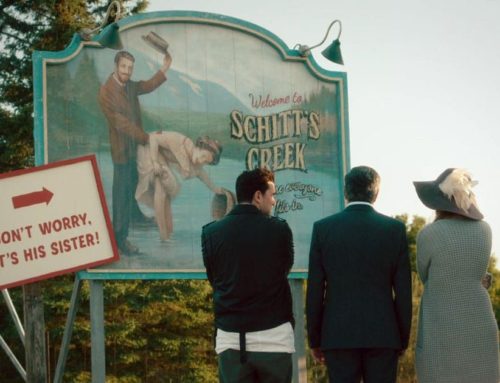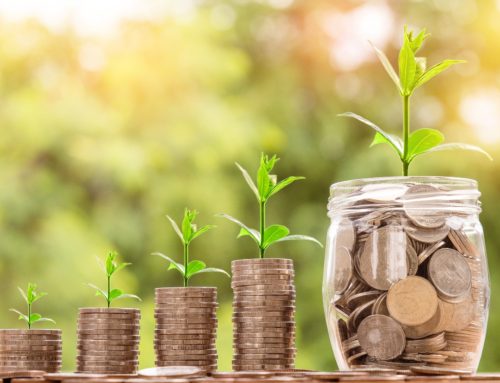When I was in my masters program one of my composition teachers told me my work would never have the pathos, profundity, or power of the work of someone who had lived through much tragedy. We had recently been diving into the life and works of Alfred Schnittke, who suffered artistic and religious repression under a communist regime. That comment has stuck with me and I have thought about it often. At the time I was in my early twenties, recently married, a new home owner, and happy with my life. In truth I hadn’t yet experienced hardship or suffering. Nor had I experienced any real psychological issues, such as depression.
I have grown and experienced a lot in the decade since hearing that comment. My wife and I have suffered several miscarriages, many of our personal and financial plans have been changed, delayed, or abandoned, we’ve experienced major health issues in our family, I have lost what I thought was a dream job, we’ve been forced to “restart” many aspects of our life, and I experienced real depression for the first time. In light of my composition teacher’s comment, how has this influenced my music?
This all came to mind recently when I came across an article published on CNN’s website titled, “The dark side of creativity: Depression + anxiety x madness = genius?” by William Lee Adams. You can find it here. In the article Adams summarizes some recent psychological studies that correlate creativity with depression, anxiety, bi-polar behavior, and suicide. Using gene tests researchers have shown that many highly creative individuals have the genes linked with severe psychological disorders. Furthermore, fMRI scans of highly creative people who have already been diagnosed with a psychological disorder lack the ability to properly filter information directly influencing their ability to focus.
As much as it may be true that highly creative people tend to exhibit psychological disorders it is not an excuse to continue living with depression, anxiety, or anything else. Through the way we think, the words we use, and how we take care of our bodies through diet, exercise, and sleep we can control many of these states. Furthermore, if you need true psychological help you need to schedule an appointment with a qualified doctor and discuss options for therapy and possibly medication. I do not believe that experiencing hardship or living with psychological disorders is an excuse to accept a lowered quality of life.
As composers we need to channel these emotions and states into expressiveness and allow them to increase our creativity. I certainly try to. Maybe this is what my professor meant all along—that a lack of life experience and psychological discord limited my ability to fully express. I certainly have a greater depth of experience to draw upon when composing. Furthermore, I can empathize with a wider range of human experience which allows me to write more authentic music and connect with my audience. I hate experiencing depression, anxiety, and hardship. Yet it is through these challenges that I have grown.
Some questions for you:
- Do you agree with the article?
- Do you suffer from, or experience, depression, anxiety or other psychological orders? How does this affect your music and creativity?
- How has your life story influenced the music you write?
- Do you think what my composition professor said is true? Does a composer have to suffer through many negative experiences before he or she is able to write truly powerful music?
Let me know what you think in the comments.






Thanks for sharing; I’ve had similar experiences, and I believe that struggling with depression and anxiety has made my music much more interesting and “real.”
You’re welcome, Chris! This topic, as a whole, is not open for discussion in our society. Nor is it frequently discussed within our composer communities. I’m glad to hear you’ve been able to channel it into your music.
Drawing on powerful emotions and hard experiences has always been part of my compositional process. However, I do find that when in the midst of hard times or depression (as I happen to be in now) it becomes very difficult for me to write. Perhaps on the other side, I might be inspired by the experience, but it is debilitating when actually in it.
Hi, Calvin! Thanks for the comment. Courage, my friend. It will get better. When I’ve been in my moments of depression and anxiety I’ve found the best thing for me is to actually do something. Of course, that’s easier said than done because when you’re depressed taking action is THE LAST thing on your mind. Email me. Let’s talk.
I’ve been enjoying your podcasts immensely and just found your website. The headline of this post intrigues me enough to want to respond because I’m afraid I don’t entirely agree with your professor. But the idea scares me so I hope this doesn’t come across over the top but here we go.
It seems to me that a musician can bolster his sense of human achievement by comparing himself to others. One way to do this is to reflect on past struggle and name it a necessity to success. And then to uphold it as a gate, and himself the advocated gatekeeper through which a boy-composer becomes a man-composer. Being a jazz pianist I’ve heard some say you can’t play the blues without having been down and out and have an ex-girlfriend, such and such. But haven’t we all had deep experiences and circumstances in our lives no matter how old we are, that affect us deeply? Is it too much to say that someone’s music is not going to appeal to an audience because it is too happy? I do not go out looking for misery and it still tries to find me.
It is generally agreed that by going through significant mental challenges we can be rewarded with a great art. Many composers have advocated that their art is better because of struggle. One is the path of Berlioz, when he subverted his feelings of love into his effulgent musical compositions. Or in fiction, when Batman supposedly becomes a better man by learning from the shadows and the darkness which teach him Ninjutsu, and then in turn destroys them (ironically). I think the struggle was a byproduct of getting through the dirt to the diamond. But you do not set out looking for dirt.
But I don’t think one can expect to benefit from struggle itself, if without a reward. By advocating for your body and symptoms to tell you what is true about your art, you let it control both. But matter is not a vestibule which holds truth. I think that when we ask our life circumstances to control us, we do not get that power back in any surplus form.
As Calvin noted, I too find it difficult to create when under a mental cloud.
Thank you for cultivating so many thoughts on composing and careers!
Hi, Joe! Thanks for the thoughtful comment. You’re right. It’s about diamonds and not dirt. I think, though, many people (myself included) struggle to keep the hope up while feeling buried in the dirt. Thank you for listening to the show!
Yes, I would think that being through the depths of emotions would enable a person to write more compelling music. In fact, the music is best expressed when a person is in the episode itself. Personally, when I was in depression in secondary school, I created a lot of sad music to express myself. Something that I think I cannot do now anymore.
Life is rather smooth for me now, and I have a strong feeling that it will get even better in future. Much as I want to be happy, and have always been working towards this goal my whole life, I do not want to lose the depth in my piano improvisations and compositions.
I can try to write music that are more upbeat and happier with my new experiences. But I would feel that the previous level of depth and sincerity (such as pouring my heart out in the music) would have been lost.
I’m glad things are going well for you! I do think it’s important for us to be honest with ourselves about where we are and what we’re dealing with. Correspondingly, I think our music should reflect that honesty. That’s not to say that people who have never experienced depression aren’t able to write moving, deep, and even dark works; or those who are currently depressed aren’t able to write uplifting and cheerful music.
Thank you for your thoughts!